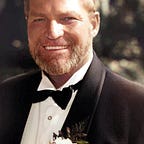“Analyzing Putin’s State of the Nation Speech: Geopolitical Context and Potential Biases”
Introduction:
The State of the Nation address, an annual speech by the President of Russia, holds significant weight in outlining the country’s domestic and foreign policy direction. In his recent address, President Vladimir Putin made several claims that deserve a closer look, especially given the volatile geopolitical context surrounding Russia.
1. Broader Geopolitical Context:
Russia-Ukraine Relations:
Since Crimea’s annexation in 2014, Moscow and Kyiv’s relationship has been tense. While Russia views its actions as a necessary response to perceived threats, especially NATO’s eastward push, many critics see this as a clear violation of Ukraine’s sovereignty.
Russia-West Relations:
The post-Cold War era has been marked by several lows between Russia and the West, notably the US and EU. Sanctions, alleged election interferences, and cyber-attacks are a few flashpoints in this relationship. The accusation that Western democracies promote “totalitarian values” underlines the deep-seated mistrust.
Nuclear Arms Control:
The New START treaty’s potential dissolution could signify not just deteriorating US-Russia relations but also the alarming possibility of a renewed arms race.
2. Evaluating Various Sources:
Russian State Media vs International Outlets: While RT and other state-backed media might echo the Kremlin’s stance, contrasting it with international outlets like BBC, CNN, and Al Jazeera provides a fuller picture. Moreover, tapping into academic journals offers an even deeper understanding of these geopolitical intricacies.
3. Navigating Potential Biases:
State Media Influence: Recognizing the potential slant in state-controlled media, like in Russia, is crucial. However, one must also be wary of biases against Russia in Western outlets rooted in historical animosities.
Narrative Construction: The framing of events varies based on geopolitical interests. The West’s portrayal of Russia might lean towards the ‘aggressor’ label, whereas Russia could depict the same actions as a defence against Western hostility.
Cold War Shadows:
Historical baggage, especially from the Cold War, often skews perceptions and narratives. It’s essential to differentiate between past animosities and current realities.
Conclusion:
Unpacking President Putin’s State of the Nation address demands a multi-faceted approach. Beyond the immediate claims lies a complex web of geopolitics, historical grievances, and media biases. To grasp the whole essence of such statements, readers must engage with diverse sources and maintain a balanced, informed perspective.
